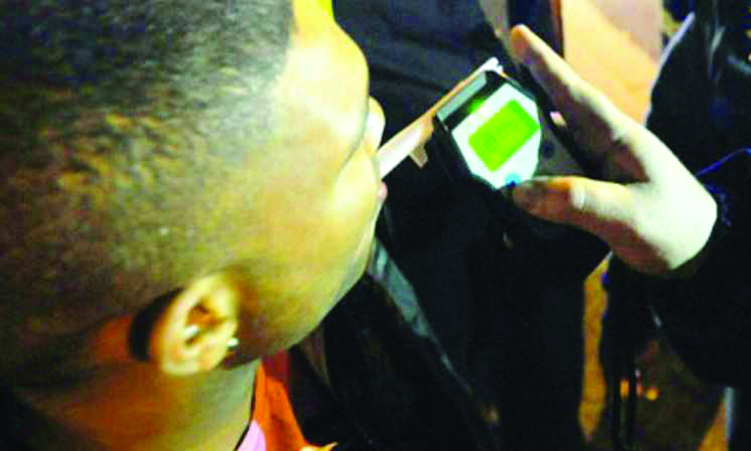Employers need to revise their alcohol policies following a court ruling in Namibia which saw an employee, who has been dismissed for alleged drunkenness, ordered to return to work and receive backpay of N$65 000.
Furniture retailer Bears dismissed Johannes !Hoaeb in August 2020, citing the company’s zero-tolerance policy on alcohol.
However, a Labour Court ruling in September last year questioned this policy, stating it cannot be an absolute rule that trumps the rights of employees.
The court said Bears did not provide any evidence to show !Hoaeb’s alleged intoxication affected his ability to perform his duties.
Labour consultant Marius Basson says in the Bears’ implementation of the policy, it ignored the impact of !Hoaeb’s condition on his work performance.
The employee took the store to the Labour Commissioner, where an arbitrator ruled in his favour in July 2021, stating that the company had not followed the correct procedures when dismissing the employee.
The company then appealed the decision in the Labour Court.
In a September 2022 ruling, Bears was ordered to reinstate !Hoaeb and pay him 10 months’ salary of N$6 500 as backpay since his dismissal, which amounted to N$65 000.
Meanwhile, Basson says the ruling highlights the importance of employers ensuring their alcohol policies provide for different scenarios in respect of alcohol-related offences.
“Not all incidents of being under the influence of alcohol justify an employee being dismissed in terms of a ‘zero-tolerance’ policy,” he says.
He says in many cases, issuing an employee with a final written warning if the offence is serious enough should be considered before dismissal.
In the case under discussion a sanction short of dismissal could have paid off dividends, Basson says.
He believes the case will in future be heavily relied on by arbitrators and trade unions.
“Employers are strongly advised to review their alcohol policy in accordance with the decisions made by the Labour Court in this case,” he says.
Labour expert Herbert Jauch says the case is intriguing due to the many technicalities involved.
He says the instruments used to measure intoxication, the meaning of company policy guidelines, and the employee’s ability to perform their duties need to be clear.
THE CASE
In delivering the judgement in September last year, Labour Court judge Orben Sibeya questioned the accuracy of the two breathalysers used on !Hoaeb, noting that the alcohol tests conducted were not done according to proper procedure.
Sibeya said Bears should have considered the possibility of !Hoaeb having a medical condition or using medication which could affect the results of alcohol tests.
According to court papers, the alcohol tests used in the case were contradictory, indicating both the absence and presence of alcohol.
Sibeya said Bears’ zero-tolerance policy on alcohol cannot be an absolute rule that trumps the rights of employees.
He questioned the company’s ‘zero-tolerance’ policy on alcohol to justify !Hoaeb’s dismissal.
He said Bears did not provide any evidence to show !Hoaeb’s alleged intoxication affected his ability to perform his duties.
!Hoaeb worked as a stock controller at Bears at Outjo when on 24 August 2020, he was suspected to be under the influence of alcohol, and was dismissed after being found guilty at a disciplinary hearing.
He admitted that he drank alcohol on Sunday night, 23 August 2020, but denied being under the influence of alcohol the next day.
CORRECT PROCEDURES
Meanwhile, labour expert Sydwill Scholtz says employers have the right to set the standard of conduct expected of their employees in various scenarios.
In many situations, zero-tolerance policies on blood-alcohol levels are designed to ensure a safe working environment for all employees, he says.
However, in this particular case, the court seemed to have gone beyond the standard of conduct set by the employer, which was an absolute prohibition on the presence of alcohol in the employee’s bloodstream, Scholtz says.
“The entire investigation by the court should have been directed at the presence of alcohol in the bloodstream of the employee, and not on the effect the alcohol would have on the ability to perform his duties,” he says.
“It is therefore my opinion that the courts should apply the facts of the case to the rules applicable under that specific employment context, determine the implementation of the policies and knowledge of the rule, and then judge accordingly, instead of passing judgement while reading into the level of intoxication if any form of intoxication was prohibited absolutely,” Scholtz says.
Stay informed with The Namibian – your source for credible journalism. Get in-depth reporting and opinions for
only N$85 a month. Invest in journalism, invest in democracy –
Subscribe Now!










